Whether you're buying your first home, refinancing, or just curious about home loans, Citizens Bank is here to help you through the process. From start to finish, we want you to feel confident in your homebuying process. If you have any questions or are ready to start, please
reach out to any of our mortgage lenders!
Please Note: All loans are subject to credit qualifications and approval. Certain fees and conditions may apply. Please see a mortgage lender for additional product information.
Know Your Homeownership...
Who Are Your Homebuying Partners?

Citizens Bank Mortgage Lender
We will answer your questions and guide you through the entire homebuying process - helping you prequalify, collect documents, and walk you through the different home loans and down-payment options.
|

Real Estate Agent
They’re the specialists in the housing market and will help you find your property. They’ll help with the necessary paperwork, schedule home inspections, communicate with sellers, help you make an offer, and keep you updated on the status of negotiations.
|

Title & Escrow Officer
They’ll make sure that there are no issues with the title or deed of the property, and ensure that there are no inconsistencies, previous money owed to the property, or other issues. They’ll also verify and finalize the documents before funds for the sale are transferred.
|

Insurance Agent
They’ll assess your needs to help you find the best insurance product for you and your home and will provide proof of insurance to your lender when it’s time to finalize the process.
|

Home Inspector
They’ll review the property for any damages or problems that need to be fixed or replaced to make sure that it’s ready for you to move in.
|
|
What Terms Do You Need To Know?
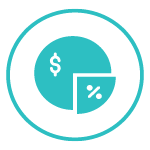
Annual Percentage Rate (APR)
The full cost of a loan, including interest and loan fees, expressed as a yearly percentage rate. Because all lenders apply the same rules when calculating the APR, it provides you a good comparison of the cost of different loans.
|
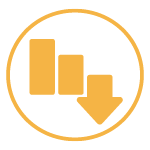
Debt-To-Income Ratio (DTI)
The ratio, expressed as a percentage, is calculated by dividing the borrower’s monthly payment obligations by their gross monthly income.
|

Private Mortgage Insurance
If you do not have a down payment of 20%, lenders will allow a smaller down payment - as low as 0% depending on the program. With the smaller-down-payment loans, borrowers are usually required to carry private mortgage insurance - which will require an additional monthly payment, depending on your loan’s structure.
|

Principal, Interest, Taxes, and Insurance
These are the four components of a monthly mortgage payment. Principal refers to the part of the monthly payment that reduces the remaining balance of the mortgage. Interest is the fee that is charged for borrowing the money. Taxes and Insurance refer to the monthly cost of property taxes and homeowner’s insurance.
|

Escrow
Refers to the portion of the mortgage payment that is designated to pay for property taxes and hazard insurance. It can also include flood insurance.
|
|
What Does The Homebuying Roadmap Look Like?

1. Talk To Our Mortgage Lenders
Our team of local, knowledgeable staff will work with you, guiding you through every step of the homebuying process - from start to finish.
|

2. Find Your Property
Choose a local real estate professional who can help you find the home that’s right for you.
|

3. Inspect Your Property
Once you have a home in mind, you have the option to ask your real estate agent for a home inspection to make sure that the property is in good shape.
|
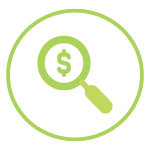
4. Get Your Property Appraised
When you’re ready, Citizens Bank will arrange an appraisal to determine your home’s estimated value.
|

5. Closing Day
The day when the final papers are signed, and the home formally exchanges hands.
|

6. Move In
The home is now yours! Congratulations!
|
Understand Your Homeownership....
What Is A Credit Score?
Your credit score, also known as your FICO score, is a three-digit number that ranges from 300 to 850 and explains your credit worthiness - or your ability to repay debt. The higher your score, the lower your interest rate will be. There are three main credit bureaus used in determining credit worthiness: Equifax, Experian, and TransUnion. They have similar criteria and calculate your credit score based on:
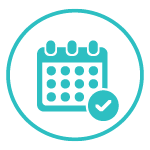
Payment History
The best thing you can do to keep your credit score high is paying on time. Lenders will look at your payment history to ensure that you don’t miss any payments and that you take your debt seriously.
|

Amounts Owed
As a general guideline, you should never owe more than 30% of your total credit available. For example, for a credit card with limit of $5,000 you should keep the outstanding balance below 30% or $1,500.
|

Length Of Credit History
The longer you’ve been working on your credit, the higher your score will be.
|
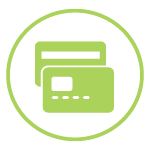
Credit Cards
Opening many different credit cards in a short period of time, especially if you don’t have a long credit history, will affect your credit score negatively.
|
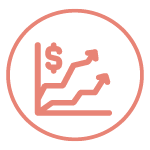
Credit Mix
Diversifying the types of credit you have, such as having a credit card and an auto loan, will bring your score up.
|
|
What Are Closing Expenses?
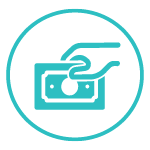
Down Payment
This is the total amount of money you will put down at the time of closing for the final purchase. This is a percentage of the purchase price and depends on the loan type you choose.
|

Closing Costs
These are the fees associated with the purchase of your home, such as loan-origination fees, title insurance, and appraisal fees. These are paid at the closing transaction - when the title of the property transfers owners.
|

Prepaids
These are the costs that will be due on your home loan, including property taxes, and homeowner’s insurance, if required.
|
|
What Are The Homebuying Do's and Don'ts?

Do's
|

Don'ts
|
| ✓ Ask any and all of your questions throughout the process |
✕ Change jobs, quit your job, or become self-employed |
| ✓ Keep copies of your important financial documents |
✕ Spend the money you have saved for the down payment, closing costs, and other mortgage expenses |
| ✓ Be sure to understand and follow the necessary steps for any down payment funds you receive |
✕ Increase debts/balances or miss payments |
| ✓ Submit requested documentation in a timely manner |
✕ Omit debts or liabilities from your loan application |
| ✓ Shop for Homeowner’s Insurance |
✕ Finance furniture or appliances or submit a new credit application |
| ✓ Let our mortgage lender know about any other properties you own |
✕ Originate new credit inquiries (e.g. no new loans, auto loans, credit cards, or lines of credit) |
|
✕ Make large deposits or transfer funds |
|
✕ Co-sign any loans |
|
✕ Keep cash in a physical safe or overseas account if you plan to use these funds for your down payment |
Please Note: All loans are subject to credit qualifications and approval. Certain fees and conditions may apply. Please see a mortgage lender for additional product information.




























